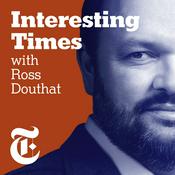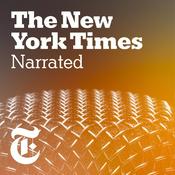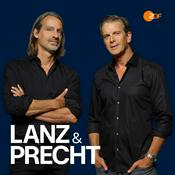Dostępne odcinki
5 z 8
- Assessing the threat from the Islamic State in AfghanistanJoining EER on the podcast is Dr. Antonio Giustozzi, a Senior Research Fellow in the Terrorism and Conflict program at the Royal United Services Institute (RUSI) in London. The discussion covers the origins of the Islamic State’s branch in Afghanistan, the Islamic State Khorasan Province (ISKP); how ISIS at the “centre” played on cleavages in Afghanistan and specifically the Tehrik-e Taliban Pakistan (TTP or “Pakistani Taliban”) to establish itself; the evolution of ISKP in the years since; the relationship of ISKP to the Salafist communities in Afghanistan; the ISKP-Taliban war; the condition of ISKP since the NATO withdrawal from Afghanistan in 2021; and the reality of ISKP’s international terrorism threat.--------54:00
- What Should Western Governments Do About Islamic State Foreign Fighters?Phil Gurski, the President of Borealis Threat and Risk Consulting and a Distinguished Fellow in National Security at the University of Ottawa’s Professional Development Institute (PDI), who was previously a senior strategic analyst at the Canadian Security Intelligence Service (CSIS) for fifteen years, spoke to the EER podcast about the legal and political issues for Western states in bringing their citizens who joined the Islamic State (ISIS) home. Gurski documents the context of foreign fighters and the associated issues of domestic terrorism, specifically in Canada, over the last few decades, which includes not only ISIS but the Sikh extremists of the Khalistan Movement and Al-Qaeda. The security risks of bringing ISIS returnees back and the political resistance is discussed, plus the difficulties in securing prosecutions if they are brought back to their countries of origin. How to handle children taken to the ISIS “caliphate”, online radicalisation, deradicalisation, jihadists in prisons, and the interface between intelligence and the legal system were also examined.--------59:59
- How Terrorists Use Cryptocurrency and What We Should Do About ItDr. Hans-Jakob Schindler, the Senior Director of the Counter Extremism Project (CEP), spoke with EER on this episode of the podcast about the use of cryptocurrency and related technologies by terrorists and other malign actors. Dr. Schindler began by describing what cryptocurrency is: the philosophy that underpins it, its origins, and how it has become more popular over time. He then went on to describe why crypto is used—the advantages it provides—and how it is used by groups like the Islamic State (ISIS) and Iran’s Hezbollah to move money, even in states where the technological infrastructure would not seem to support it. There is an interaction between crypto and the older hawala system, which Dr. Schindler explained. The use of crypto by outlaw states such as Russia and North Korea to circumvent sanctions was also touched upon. The regulation of the crypto space was discussed in detail: the resistance of the industry, the steps already taken by the U.S. and E.U., and what else could be done, as well as the potential adaptations terrorists will adopt in the future.--------45:03
- The Iranian Revolution in Yemen: the Houthi MovementWhere did Ansarallah or “the Houthis” come from? What is their relationship with Iran? How have they come to dominate so much of Yemen, and what is the nature of their regime? And how do the Houthis fit into the Iranian militia network as a threat to peace and security in the Middle East? These are some of the questions EER takes up in the latest episode of our podcast with Michael Knights, the Jill and Jay Bernstein Fellow at The Washington Institute, who specializes in the military and security affairs of Iraq, Iran, and the Gulf states. Knights documents that the Houthis are an outgrowth of the Islamic Revolution in Iran exported to Yemen soon afterward, and it is with the help of the Islamic Revolutionary Guards Corps and its Lebanese branch, Hizballah, that the Houthis built up the military capacity for their jihad in Yemen. The coordination between the Houthis and Iran’s “Resistance Axis” is close, with Tehran sharing strategic guidance and weapons like drones with the Houthis. There does not appear to be any immediate-run chance of peace in Yemen, with the Houthis so entrenched.--------38:46
- The Prospects of the Islamic State and Al-Qaeda in AfricaJacob Zenn, an adjunct associate professor on African Armed Movements and Violent Non-State Actors in World Politics at the Georgetown University Security Studies Program (SSP) and editor and fellow on African and Eurasian Affairs for The Jamestown Foundation in Washington DC, spoke to EER about the Islamic State (ISIS) reasserting its dominance over its renegade branch, Boko Haram, in Nigeria. The ongoing challenge of Al-Qaeda's Al-Shabab, perhaps the most powerful jihadist group in Africa, to Somalia and its neighbors, and ISIS's branch in the country, was also discussed. Other topics included ISIS's outposts in the Congo and Mozambique, their interconnectedness with ISIS's other hotspots in Africa and the potential dangers to neighboring states; the competition between ISIS and Al-Qaeda in West Africa that has been ongoing since 2020; and the implications of ISIS's financial infrastructure in South Africa.--------30:00
Więcej Wiadomości podcastów
Trendy w podcaście Wiadomości
O European Eye On Radicalization
European Eye on Radicalization (EER) : is a platform that brings together analysts, scholars,
and practitioners from all over the world to examine issues around radicalization and
extremism affecting Europe. We intend to provide insights for both experts in the field and
the general public to enhance knowledge so that discussion and debate in Europe about how
to proceed on difficult issues, such as terrorism, can take place on a better-informed basis
Strona internetowa podcastuSłuchaj European Eye On Radicalization, Dwie lewe ręce i wielu innych podcastów z całego świata dzięki aplikacji radio.pl

Uzyskaj bezpłatną aplikację radio.pl
- Stacje i podcasty do zakładek
- Strumieniuj przez Wi-Fi lub Bluetooth
- Obsługuje Carplay & Android Auto
- Jeszcze więcej funkcjonalności
Uzyskaj bezpłatną aplikację radio.pl
- Stacje i podcasty do zakładek
- Strumieniuj przez Wi-Fi lub Bluetooth
- Obsługuje Carplay & Android Auto
- Jeszcze więcej funkcjonalności


European Eye On Radicalization
Zeskanuj kod,
pobierz aplikację,
zacznij słuchać.
pobierz aplikację,
zacznij słuchać.





































